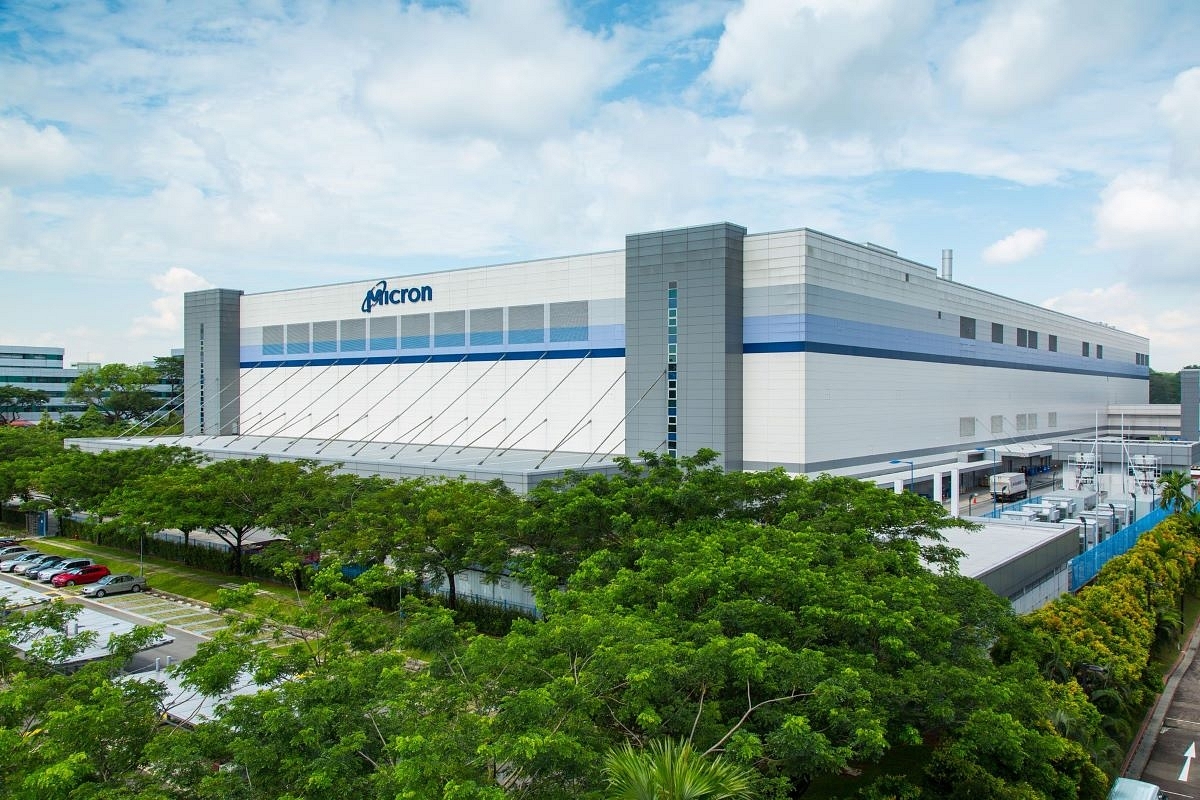Analysis
Leading Memory Chip Manufacturer Micron Unveils $150 Billion Investment To Build New Fabs
- Leading U.S. memory chip maker Micron Technology announced that it plans to invest more than $150 billion globally over the next decade in cutting-edge memory chip manufacturing and research and development (R&D), including potential U.S. fab expansion.
- Micron Technology is among handful of semiconductor manufacturers with the capability to produce DRAM (Dynamic random access memory, a specific type of RAM chips. It holds 23% globa)l market share. Samsung is dominant player with 41.7% share and is followed by SK Hynix Inc. (30%).

Micron
Leading U.S. memory chip maker Micron Technology announced that it plans to invest more than $150 billion globally over the next decade in cutting-edge memory chip manufacturing and research and development (R&D), including potential U.S. fab expansion.
"Memory is at the leading edge of semiconductor manufacturing and fuels everything from feature-rich 5G smartphones to the AI-enabled cloud," Micron President and CEO Sanjay Mehrotra said in a statement.
Memory and storage forms significant portion of the global semiconductor industry, and represents approximately 30% of the $460 billion semiconductor industry
Micron Technology is among handful of semiconductor manufacturers with the capability to produce DRAM (Dynamic random access memory, a specific type of RAM chips. It holds 23% globa)l market share. Samsung is dominant player with 41.7% share and is followed by SK Hynix Inc. (30%).
Micron Technology holds around 12% marker share in NAND flash memory technologies.
Both DRAM and flash memory chips are essential to smartphones, data centers, computers, cars and myriad other items.
“Micron’s leadership in both DRAM and NAND technologies and the strength of our roadmap enable us to invest more than $150 billion with confidence to extend our industry-leading memory innovation into the next decade, and deliver differentiated products to our customers" he added.
Micron Technology, while stating that it is working with governments around the world, including in the U.S. where CHIPS funding and the FABS Act would significantly subsidise new industry investments, did not spell out were it plans to expands its manufacturing operation.
"State-of-the-art memory manufacturing at competitive cost requires large-scale fabs that have the potential to create tens of thousands of new jobs and significant economic growth. U.S. memory manufacturing costs run 35-45% higher than in lower-cost markets with established semiconductor ecosystems, making funding to support new semiconductor manufacturing capacity and a refundable investment tax credit critical to potential expansion of U.S manufacturing as part of Micron’s targeted investment." the company said.
According to some reports, Micron Technology is planning to build a new factory at its Japanese production site in Hiroshima at a cost of 800 billion yen ($7.0 billion),
Micron currently has global manufacturing footprint and R&D network that spans 13 countries. It operates manufacturing facilities in U.S., Taiwan, Japan and Singapore, and it operates chip packing facilities in China and Malaysia.
Taiwan serves as the production hub for Micron as the memory chip supplier at present operates A1 and A2 plants with a back-end packaging and testing site in Taoyuan City.
The new wave of chip foundry investment is driven by the accelerating demand for chips across a wide range of markets including communications, computing, healthcare, online services and automotive.
Semiconductor manufacturers worldwide will commence construction on 19 new high-volume fabs by the end of this year and break ground on another 10 in 2022 , according to a quarterly World Fab Forecast report by SEMI, an industry association comprising companies involved in the electronics design and manufacturing supply chain.
A global shortage of semiconductor microchips is causing havoc, delaying car production and affecting operations at some of the largest consumer electronics manufacturers.
Support Swarajya's 50 Ground Reports Project & Sponsor A Story
Every general election Swarajya does a 50 ground reports project.
Aimed only at serious readers and those who appreciate the nuances of political undercurrents, the project provides a sense of India's electoral landscape. As you know, these reports are produced after considerable investment of travel, time and effort on the ground.
This time too we've kicked off the project in style and have covered over 30 constituencies already. If you're someone who appreciates such work and have enjoyed our coverage please consider sponsoring a ground report for just Rs 2999 to Rs 19,999 - it goes a long way in helping us produce more quality reportage.
You can also back this project by becoming a subscriber for as little as Rs 999 - so do click on this links and choose a plan that suits you and back us.
Click below to contribute.
Latest